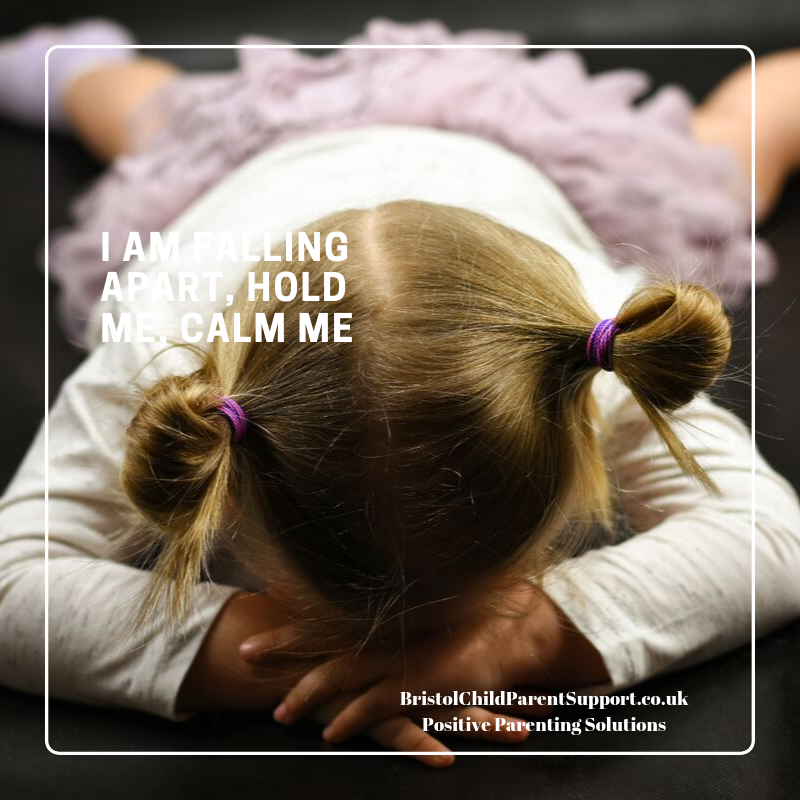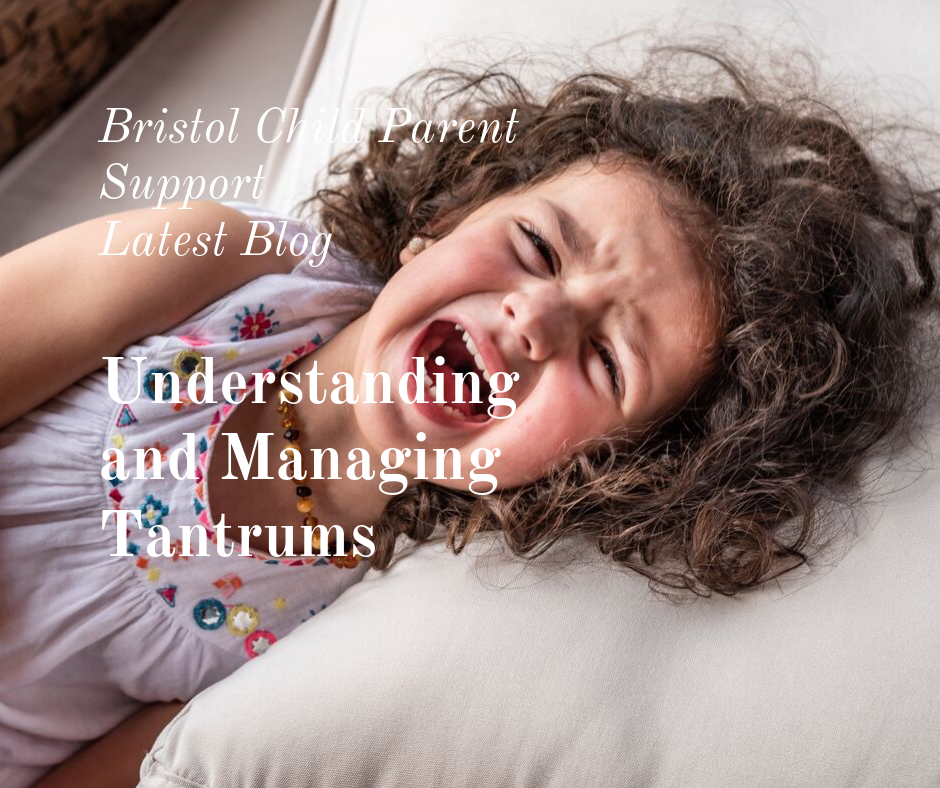Surviving our child’s big feelings is one of the most challenging aspects of parenting. We all need support at these times. Unfortunately, a tantrum is a characteristic feature of toddlers’ lives. They usually start at the age of one and can continue beyond three. They are often frightening for you and them. However, they have an essential function in your child’s development. What are they, and why are they so important?
What is a Tantrum?
Tantrums are storms of feelings, often a response to being told “no” If you say no, you have to be prepared for the response; I know how hard it is to survive them. Saying no to your child is very important; they need to learn about limits and how to collapse and recover from them. If you always give in, a child is always in control and may struggle to separate from you. It often makes for a very bossy person with an inflated self-experience. This may lead to difficulties in friendships and peer relationships. Other children don’t tolerate ” being controlled”.
Why are they important
A child s brain is born unfinished. Ninety per cent of the growth in their brain occurs in the first five years of life. There are rapid neuronal connections; hence, your child’s brain influences your interactions with their environment.
They arise because your child’s higher rational brain is developing the capacity to manage powerful feelings acceptably. Tantrums are more noticeable before language development. Tantrums are a crucial time for brain sculpting. They enable pathways to manage stress and assertion later in life. Yes, they are a perfect thing!
The problem of the ” too good child.”
Maybe you are managing lots of tantrums now. Please be reassured that the ” too good child” with no tantrums may be over-compliant. They learn big feelings are unacceptable; they repress emotion and struggle with self-assertion now and later in life. Consequently, your child ( who is having tantrums), by contrast, learns how to manage frustration and big feelings. They will know that it’s okay to be assertive!
Are you surviving and managing a Tantrum?
A tantrum may bring up some very uncomfortable feelings within you. You may react with anxiety or anger. It may even result in feelings of helplessness, powerlessness, and embarrassment. How it makes you feel is the main communication of the tantrum, you are meant to feel worried, hopeless and angry. It may be helpful to understand that it’s not personal but the communication of powerful feelings.

Due to the unfinished nature of a child’s emotional brain, children tend “to act” rather than speak; their communication is through behaviour. Our task is to count to 10, gather our thoughts, try our best to remain calm, not be flooded by their feelings, and offer an understanding of what might be troubling them. Surviving them is so hard as they are not to do with reason. Often, we want them to stop quickly; during these times, it is helpful to know that there are two different types of tantrums and alternative ways of managing each one.
Surviving Distress and Nero Tantrums
Margot Sunderland identified two types of tantrums from her book What Every Parent Needs to Know ( it’s a great book)

During the ” Nero” tantrum” you must move away from your child, hold the limit firmly, and not give in. There is often an absence of tears; they may scream and shout. There is a feeling of being bullied into submission. Hold firm; use ignoring. If you give in at this stage, they will learn that this behaviour will achieve their desired outcome. Ensure you have discussed clear limits before this. Safety first, it’s never okay for your child to hit or destroy toys, etc.; you could say:
I know you are angry but I can’t let you hit or kick me
By contrast to the “Distress tantrum”, you will see lots of tears and a fragmented sense of self; they seem more out of control. They may throw themselves on the floor, look very miserable and more.

During this type of tantrum, the main aim is to reassure, contain and help them by soothing them. During these moments, you might:
- Hold them tenderly, sit with them
- Use words such as I know, I know, you wanted the toy, It’s okay, I am here.
- Distract but limit their choices; two will be more than enough.
- Say to yourself that this is very real for them and genuine.
A supportive statement to say to yourself in those hot moments
If you struggle to manage the storm, be kind to yourself, we are all human. Remember that we are ” real parents”, not perfect ones. When I am struggling, I often say to myself:
This will pass and breathe
In conclusion, I hope that this blog may help you to survive those “hot moments” with your child. Anger is going to be the theme for a while. If you would like more help on Tantrums, do get in contact I am also running a Positive Parenting for Toddlers Workshop In November,
Everything passes in life…this moment will too. Generally children and parents always want to do better, so tomorrow is another day.
We will be sharing lots more on Tantrums and difficult behaviours.
Furthermore, remember to say I love you no whatever you do or say forever. When your child knows they are loved unconditionally no matter what, the connection and attachment between you will be secure for life, and everything is much easier with Love Always Catherine.



